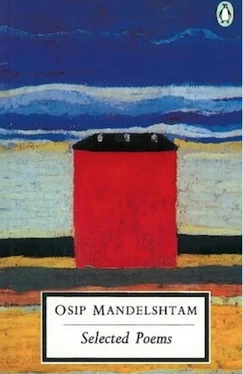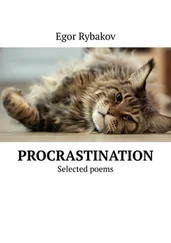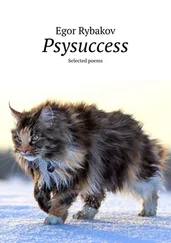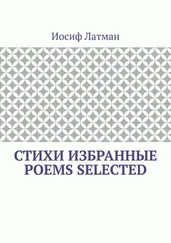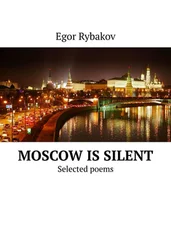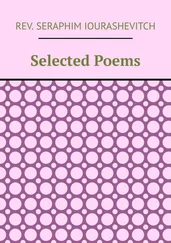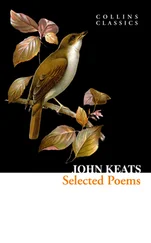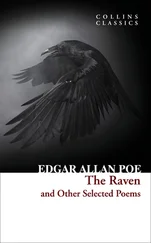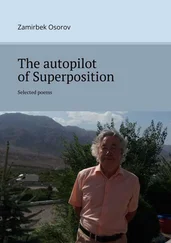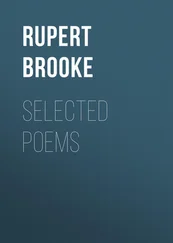Osip Mandelshtam - Selected Poems
Здесь есть возможность читать онлайн «Osip Mandelshtam - Selected Poems» весь текст электронной книги совершенно бесплатно (целиком полную версию без сокращений). В некоторых случаях можно слушать аудио, скачать через торрент в формате fb2 и присутствует краткое содержание. Город: London, Год выпуска: 1991, ISBN: 1991, Издательство: Penguin Books, Жанр: Поэзия, на английском языке. Описание произведения, (предисловие) а так же отзывы посетителей доступны на портале библиотеки ЛибКат.
- Название:Selected Poems
- Автор:
- Издательство:Penguin Books
- Жанр:
- Год:1991
- Город:London
- ISBN:978-0-14-196539-0
- Рейтинг книги:4 / 5. Голосов: 1
-
Избранное:Добавить в избранное
- Отзывы:
-
Ваша оценка:
- 80
- 1
- 2
- 3
- 4
- 5
Selected Poems: краткое содержание, описание и аннотация
Предлагаем к чтению аннотацию, описание, краткое содержание или предисловие (зависит от того, что написал сам автор книги «Selected Poems»). Если вы не нашли необходимую информацию о книге — напишите в комментариях, мы постараемся отыскать её.
Selected Poems — читать онлайн бесплатно полную книгу (весь текст) целиком
Ниже представлен текст книги, разбитый по страницам. Система сохранения места последней прочитанной страницы, позволяет с удобством читать онлайн бесплатно книгу «Selected Poems», без необходимости каждый раз заново искать на чём Вы остановились. Поставьте закладку, и сможете в любой момент перейти на страницу, на которой закончили чтение.
Интервал:
Закладка:
What street’s this one?
– ‘This is Mandelshtam Street.
His disposition wasn’t “party-line”
Or “sweet-as-a-flower”.
That’s why this street –
Or, rather, sewer
Or possibly slum –
Has been named after
Osip Mandelshtam.’
After Stalin’s death Mandelshtam was ‘rehabilitated’, but there is still no street anywhere in the Soviet Union named after him.
Mandelshtam’s Voronezh poems of 1937 appear in this book in a new order. This is the result of Jennifer Baines’s authoritative commentary, Mandelshtam: The Later Poetry (1976). Her dating, which is based on Nadezhda Yakovlevna Mandelshtam’s own typescript copy of Mandelshtam’s poems, is definitive and supersedes that of Struve and Filippov’s American edition (but the numbering of the poems printed here is still Struve and Filippov’s).
Many of the 103 translations in this volume are based on earlier versions contained in a selection first published by Elek Books in 1977, reissued with additions and revisions by Granada Publishing in 1980 and then published by Angel Books under the title The Eyesight of Wasps in 1988. Since 1988 the versions have been revised again, often extensively, to keep pace with my understanding of Mandelshtam and to attain a more precise relationship with the originals; this has been achieved mainly with the help of R. F. Holmes’s and Maxwell Shorter’s superior knowledge of Russian.
Eight poems from the 1980 volume have been liquidated: nos. 66, 84, 235, 275–85, 346/347, 357, 362, 374. The following are added to the present selection: nos. 62, 109, 140, 164, 222, 223, 233, 258, 267/268, 286, a passage from Journey to Armenia , 296, 299, 306, 312, 316, 318, 319, 320, part of the Ode to Stalin, 360.
Some of the earlier versions first appeared in Agenda, Bananas, Cyphers, English, the New Review, New Statesman, the New Yorker, Poetry and Audience, Quarto, The Times Literary Supplement and Willow Springs ; and some were used in Caspar Wrede’s play about Mandelshtam, Hope Against Hope , put on in 1982 at the Royal Exchange Theatre, Manchester.
I want to thank R. F. Holmes, who with unstinting generosity has kept me at it over the years, and Donald Rayfield, who contributed the introduction and select bibliography. For this particular edition (1991) I am especially indebted to Katie Campbell, Robert Chandler, Stephen Duncan, Maria Enzensberger, Martha Kapos, Maxwell Shorter and Robert Stein, all of whom re-awakened my interest in these poems, brought them back to life for me; and to Richard McKane for invaluable information about the new and established textual variants (new since the Struve and Filippov edition).
James Greene, 1991Osip Mandelshtam: an Introduction
Born in 1891, Mandelshtam came early enough into Russian literature to be formed by the cultural surge of the 1900s known as the Silver Age. His father, an unprosperous leather merchant, was a Latvian Jew whose written language was German; his mother, from Vilno, was Russified in speech and outlook: ‘Was she not the first of her whole family,’ wrote her son, ‘to achieve pure and clear Russian sounds?’ Mandelshtam’s first years were spent in Riga and Warsaw. A decade earlier he might have become a Yiddish, German or Polish poet, but in the 1900s discrimination in Russia was breaking down and Jews who were Russian citizens began to feel the Russian language to be their natural means of expression.
Jewish infancy was overlaid by a childhood spent in St Petersburg, and the education he received at the Tenishevsky school (where Vladimir Nabokov was to study) helped to make him a complete Hellene and European. His first lyrics show a passive receptiveness to the Symbolist other-worldliness typical of the times: Mandelshtam’s receptiveness grew into a thirst for universal culture once he had spent several terms listening to Henri Bergson at the Sorbonne and studying at Heidelberg from 1907 to 1909. From now on he was convinced that the poet’s immortal creation far outweighed in importance his mortal life: ‘condensation vanish without trace: The cherished pattern no one can efface.’
Mandelshtam’s views on culture and the poet’s vocation were much influenced by the poet and poet’s mentor Vyacheslav Ivanov (1866–1949), whose dualities of Dionysian disorder and Apollonic order became the energizing polarities in Mandelshtam’s thought, like the contrast of negative Judaic and positive Hellene, or Henri Bergson’s objective and subjective time. Equally important was Mandelshtam’s encounter with another great Symbolist, Innokenty Annensky (1856–1909), headmaster of the Tsarkoye Selo lyceum (the Eton of Russia). Annensky was a decadent poet of almost pathological modesty, who likewise saw European and Russian culture as indissolubly linked to ancient Greece, a balancing act between orderly art and chaotic numinous forces. Annensky, as translator and disciple of Verlaine, Rimbaud and Euripides, inculcated a respect for language and poetic responsibility.
Meeting Annensky’s pupil, Nikolay Gumilev, was even more crucial for Mandelshtam’s future: Mandelshtam, Gumilev and the latter’s wife, the charismatic poet Anna Akhmatova, formed the core of a new poetic grouping which formally declared itself in 1913 to be the Acmeists. The word and the ideology are in themselves insignificant: Acmeism was to be for the rest of these poets’ lives ‘a yearning for world culture’, a sense of the priority of poetic tradition over individual lyrical ego, a reaction against the worst of Symbolism – its pursuit of the occult, of empty musicality, its cult of decadent autobiography. Although Gumilev was shot in 1921 and Akhmatova spent most of her life many hundreds of miles away, Mandelshtam always felt them to be addressees and collocutors.
Mandelshtam never renounced Symbolism: in Silentium he gave priority to the idea over the reality: ‘Remain foam, Aphrodite,/And – word – return to music…’ But his early poetry that was to be published in 1913 as Stone turns more and more to symmetry, affirming architectural principles not only as the criteria for lasting poetry, but as the means of surmounting the poet’s own personal inadequacy. Notre Dame cathedral is seen to unite the negative and positive, Northern chaos and Mediterranean order in European culture, ‘The Gothic soul’s rational abyss,/Egyptian power and Christian shyness’, and inspires him to declare: ‘I too one day shall create/Beauty from cruel weight.’
The Acmeists, like the Bolshevik conspirators calling themselves ‘hammer’, ‘steel’ and ‘stone’ – Molotov, Stalin, Kamenev – stressed the positive with their ‘hard’ titles: Mandelshtam’s ‘Stone’ matches Gumilev’s ‘Pearls’, Akhmatova’s ‘Beads’, Zenkevich’s ‘Porphyry’, in tribute to Théophile Gautier’s ‘Émaux et Camées’. But their greatness lay in their ‘softness’, the vulnerable, tragic side that eventually breaks through. In Mandelshtam, the victim and exile are never utterly silenced: if not ‘Joseph, sold into Egypt’, then Ovid (exiled to the Black Sea steppes, like Pushkin and eventually Mandelshtam) is an ominous precursor. Ovid was to give Mandelshtam the title of his second book, Tristia , in 1922: but in ‘Horses’ hooves…’ of 1914 the poet already acknowledges him as the poet who ‘sang of the ox- and bullock-waggons/In the march of the barbarians’.
Unlike the other Acmeists, but like their French counterparts such as Paul Valéry and Jean Moréas, Mandelshtam had by 1912 become a Neo-classicist, reinterpreting the Mediterranean world as a timeless imaginary resource: the greatest poems of Stone , such as The casino , ‘There are orioles…’, ‘Sleeplessness. Homer. Taut sails’, merge the poet’s mind with Homeric epic and Anacreontic idyll, so that the word becomes a world in itself: ‘There are orioles in the woods, and length of vowels/Is the sole measure in accentual verse.’ Time is bridged and the Hellenic world with its insecurity, an island surrounded by barbarians, undermined by Hades, is an analogue of the present: ‘Now Homer falls silent,/And a black sea, thunderous orator,/Breaks on my pillow with a roar.’
Читать дальшеИнтервал:
Закладка:
Похожие книги на «Selected Poems»
Представляем Вашему вниманию похожие книги на «Selected Poems» списком для выбора. Мы отобрали схожую по названию и смыслу литературу в надежде предоставить читателям больше вариантов отыскать новые, интересные, ещё непрочитанные произведения.
Обсуждение, отзывы о книге «Selected Poems» и просто собственные мнения читателей. Оставьте ваши комментарии, напишите, что Вы думаете о произведении, его смысле или главных героях. Укажите что конкретно понравилось, а что нет, и почему Вы так считаете.
